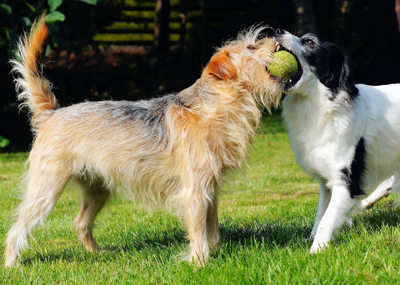I negotiate for a living...I actually do a pretty darn good job of it and I can tell you exactly why. I play what I like to call a 'long game'. Every negotiation requires relationship building skills, listening skills and the ability to see the other person's point of view. It is always about valuing and acknowledging the other party's opinions and perceptions - negotiation is never about you, it's always about them while keeping your goal in sight. Now you are saying; how can this be true, how can it be about them?? We negotiate for our business to 'GET' something; the best 'limit of liability', the best pricing, the best service levels, so how can this not be about me? Let me start by first changing your perspective in terms of negotiating.
Negotiations are about attaining goals, specifically your goals - in essence the goals are yours or the company you work for and how you plan to meet them. However, let's dive a bit deeper into what negotiations are. Well, you negotiate every single day of your life; you negotiate with your children (clean up your room), you negotiate with your spouse (take out the garbage, stop buying so many shoes) and you negotiate in your business life (contracts with clients or vendors). Others are also negotiating with you every single day; you buy a new couch, you need to get your roof replaced, you buy a new home, the list goes on and on. Negotiations are simply a means of communicating to obtain something that you want.
Stop now and think about who you will buy a product or service from? Let's say there are two sales people both trying to sell you the exact same TV...what would make you decide to buy from one over the other? It is not complicated, it's simple human nature, and we buy from who we like and who we trust. This often transcends knowledge and/or education...however, many negotiators don't see this and this brings me to my analogy of how natural behavior in terms of negotiations can be seen every day in the animal kingdom.
Let's look at dogs. It doesn't matter if you don't own a dog just go with it....
If you ever visit a dog park you will witness this every single time you are there. Dogs love their balls. Let's think about the ball as the goal, that dog will chase the ball every time you throw it and bring it back to you so you can do it again. The ball is his goal - he must get that ball. Negotiation to obtain something that you want is the goal i.e. kids cleaning their room, spouse helping with cleaning or the dog's ball.
There are 3 types of dogs (people) and they all perform their own types of negotiation to get to the goal of that ball.
Dog 1 - Aggressive type, the ball is thrown and Patches runs to get his ball but Dakota sees that ball and he goes after it too, Patches gets to the ball first but Dakota attacks Patches and pins him to the ground. His attack is more than is necessary and the owners have to pull the two dogs apart...the ball (goal) is taken away, both dogs leave the park and no one gets to play with the ball. Game over, goal lost for both dogs.

Dog 2 - Passive type, the ball is thrown and Spot runs to get his ball but Lucky sees the ball and he goes after it too, Spot see's that Lucky is coming and decides to let Lucky have it and runs away. He does not pursue Lucky he completely forfeits his ball (goal)... Game over, goal lost for one of the dogs.

Dog 3 - The Relationship Building dog - the ball is thrown and Sam runs to get his ball but Chuck sees the ball and he goes after it too. The two dogs continue to pursue each other, playfully nipping at one another, rolling around, chasing the ball. Chuck does not attack, Sam does not feel threatened so he does not forfeit his ball...Chuck watches each move that Sam makes, joyfully playing with him but he is watching and waiting. Sam will eventually drop the ball or lose attention and at that moment Chuck will come in and get the ball. This will go back and forth the entire time these two dogs are at the dog park. Both get the experience of playing with the ball and indulging in a connection with one another that gives them happiness. The goal of the ball is met by both dogs.

Relationship building dogs play the long game. They build camaraderie trust and respect. They watch the other dogs moves, learned who he is and work to understood how he plays, he never threatens the other dog but will keep pursuing him, engaging him and learning more about what the other dog valued and how his moves would play out. Each of these dogs obtained the goal of the ball by not being a bully or by being passive but by truly building a relationship with one another.
Negotiating should benefit both parties; which dog will you chose to be today; the aggressive, passive or relationship building type of dog?
